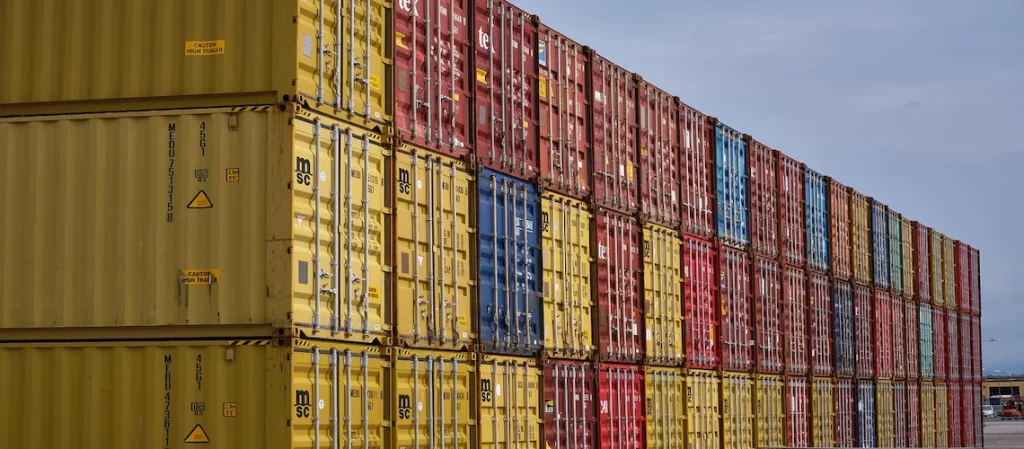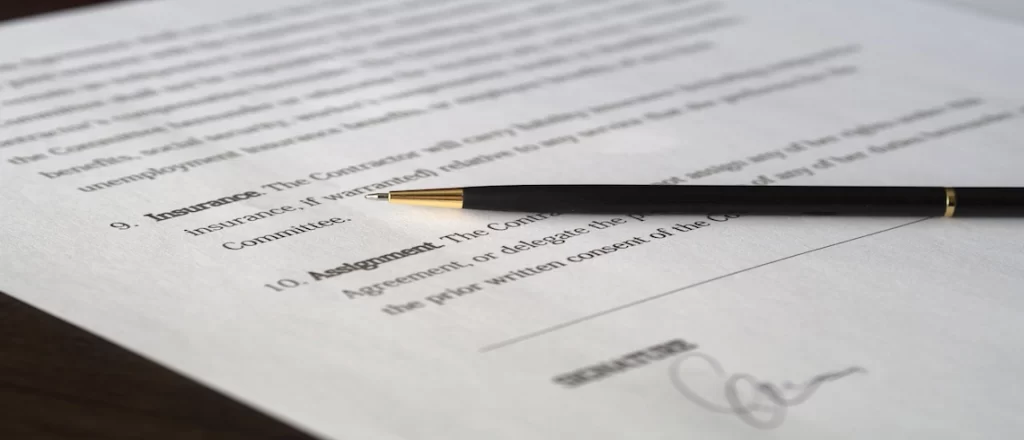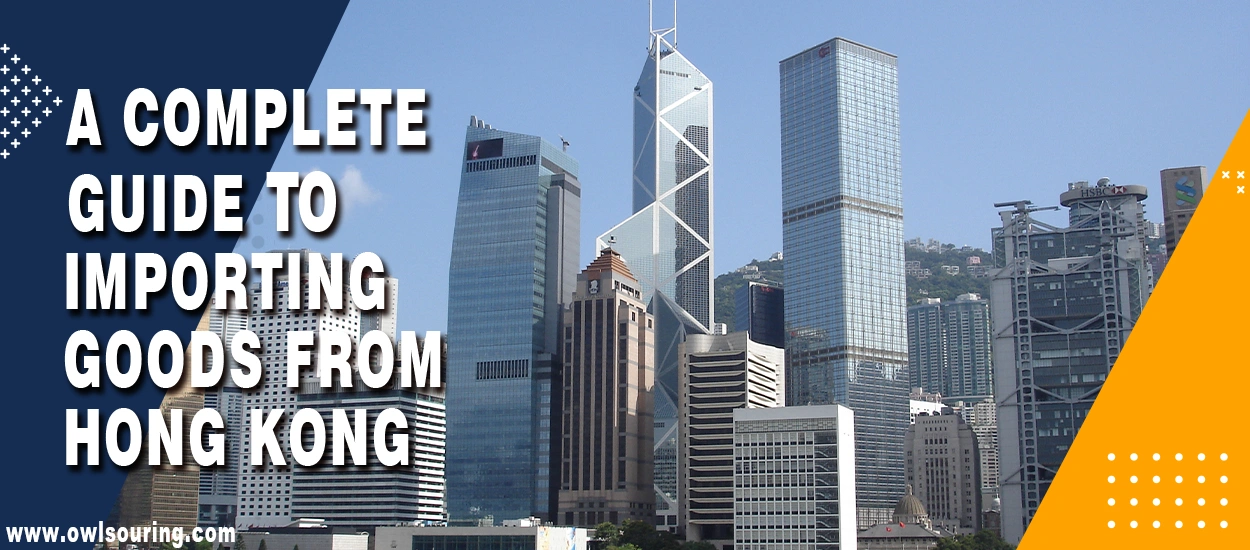Estimated reading time: 8 minutes
Have you been thinking about expanding your business? But you don’t know how to import new, exciting products. Hong Kong might just be the answer.
This place is famous for being a global trade hub that prioritizes quality. It’s the perfect place to find your next product supplier.
This guide will address common questions and give you the confidence to import from Hong Kong. Let’s start!
Why Should You Choose Hong Kong for Your Imports?
There are several compelling reasons to consider Hong Kong as your import source:
1) Hong Kong is famous for high-quality production standards. Its many suppliers are reliable and have good products. These deals mean lower import duties and straightforward procedures for you.
2) Hong Kong has an efficient infrastructure. It has a world-class transportation system. This system makes it easy to ship goods quickly and efficiently.
3) Hong Kong is business-friendly. It has a stable and transparent business environment. That makes it easier to build relationships with suppliers.
How to Import Goods from Hong Kong?

Image Source: PixaBay
Below are the key steps to help you get started with importing from Hong Kong.
Step 1: Choosing Your Perfect Product!
Search the current market for the best products. Find products that are in strong demand in your local market.
They must also be profitable for you to sell. Consider factors like competition, pricing, and current trends. You must research particular regulations or restrictions that might apply.
Step 2: Finding the Right Hong Kong Suppliers
Finding a reliable supplier in Hong Kong involves several strategies, particularly when you’re sourcing products for your business. Being a China sourcing expert myself, I suggest the following surefire strategies in finding and weeding out genuine suppliers:
1. Take Full Advantage of Online Directories
Some other very helpful directories for finding suppliers include Alibaba, Global Sources, and Made-in-China. In these directories, you can filter suppliers by location, for example, Hong Kong, product type, certification, and MOQ.
Pay close attention to the ratings, reviews, and transaction history of suppliers. The longer a supplier is verified and enjoys a high rating, the more reliable it can be.
Pro Tip: Use the messaging systems on the platforms to request samples, clarify terms, and test responsiveness before ordering.
2. Attend Trade Shows and Exhibitions
Join trade shows organized by the Hong Kong Trade Development Council, such as Hong Kong Electronics Fair, Hong Kong Fashion Week, or Hong Kong Gifts & Premium Fair.
These shows offer unparalleled opportunities to meet suppliers in person, inspect the quality of their products for yourself, and negotiate terms directly.
Networking at trade shows will help you forge long-term relations with suppliers who will understand your needs and extend appropriate solutions accordingly.
3. Contact Relevant Industry Associations in Your Locality
Connect with local industry associations in Hong Kong, like the Hong Kong General Chamber of Commerce or sector-focused groups like the Hong Kong Electronic Industries Association.
These would often maintain lists of the better suppliers one could approach and even refer such people based on one’s needs.
Moreover, they may have something to say about the latest position on industry trends, compliance standards, and best practices regarding sourcing in Hong Kong.
Be sure to check out this incredibly valuable article: How to Verify China Vendor?
Step 3: Understanding Cost Margin Involved
Importing involves various costs, so prepare a clear budget.
1) Product Price
Product cost is a significant factor. It’s the cost of products you buy from the supplier. Negotiate the best price possible, considering factors like order quantity and payment terms.
2) Shipping Expenses
It also includes freight costs. They can be for air or ocean shipping. You should also count insurance and extra logistics fees for your shipment.
3) Taxes
Customs duties and import taxes vary by product and destination country. You might need to pay them. Research these costs beforehand.
Key Compliance and Regulations for Importing from Hong Kong:
When importing goods from Hong Kong to the United States or Canada, your Hong Kong supplier must comply with local export regulations.
Suppliers hold the responsibility for obtaining export licenses and submitting proper customs declarations, but importers bear the responsibility of establishing clear Incoterms and determining responsibility.
The main areas of compliance will include customs declaration, export licensing requirements, and a basic understanding of Hong Kong’s tax system, making international trade easier without any VAT or GST applied.
| Aspect | Details |
|---|---|
| Customs Declaration | – Consignor and Consignee: Exporter (Hong Kong) and importer (destination country) details. – Value of Goods: Determines customs duties and taxes. – Tariff Classification: HS codes for product categorization. – Description of Goods: Clear details, including material composition. – Country of Origin: Verify the origin of the product. – Purpose of Shipment: Retail, prototypes, personal use, etc. – Shipping Details: Transport method, vessel/flight ID, entry port/airport. |
| Export License Requirements | – Business License: Required for legal operation in Hong Kong. – Export License: Needed for controlled products (check the Hong Kong Trade and Industry Department website). |
| Tax Considerations | – VAT/GST: Hong Kong does not impose VAT or GST, simplifying international trade. |
| Importer’s Role | – Establish appropriate Incoterms to define shipping responsibilities. |
4) Broker Fees
Work with a customs broker to handle the import process factors, including the agent fees. You must plan for that and ensure it’s within your budget.
What Are Import Regulations and Procedures in Hong Kong?

Image Source: Pexels
You must follow specific regulations to import from Hong Kong. Customs authorities set them for safe transactions.
1) Licenses and Permits for Importing from Hong Kong
Certain products might need import licenses or permits in your country. Research your product’s requirements and permit process.
How to Apply for an Import and Export License to Hong Kong in 2025
The Hong Kong Trade and Industry Department (TID) controls the issuance of licenses for the importation and exportation of all types of goods, especially strategic commodities.
An importation or exportation license is needed for controlled items before they are imported or exported from or to anywhere. The same applies to re-export and transhipment cargoes.
Application Process
Determine License Necessity: Before proceeding, verify whether your goods require an import or export license. The TID provides guidelines and a list of controlled items on its official website.
Prepare Necessary Documentation
Gather all required documents, which may include:
- Company name and registration number
- Consignee details
- Import/export license number and its expiry date
- Terms of trade and foreign exchange
- Location of clearance
- Country of origin and destination
- Intended use of the goods
- Comprehensive goods description with HS codes
- Unit quantity and price
- Any other details, if any
- Issuing authority stamp
Submit the Application
Applications for licenses should be submitted to the TID before the date of intended import or export. It would require the equivalent of approximately 2.5 clear working days as the normal processing time for import license applications for strategic commodities.
Await Approval
The TID will scrutinize the application once submitted, including a technical inspection of the product and risk assessment to confirm non-diversion for illegal purposes. Referrals to other government departments can be made as necessary.
Post-Approval Procedures
Once the license is issued:
- For Importers: Present the import licence to the carrier. The carrier will deliver the consignment and stamp the reverse of the licence, which should then be presented at the TID with a copy or extract of the relevant manifest within 14 days of importation.
- For Exporters: Ensure all export declarations are duly completed and submitted to Hong Kong Customs within 14 days after exportation.
Important Considerations
- Part-Shipments: When bringing in goods in separate shipments under one license, there are some requirements to be fulfilled for every part-shipment, like completing a “Written Declaration for Part-Shipments” and having the carrier draw up the necessary documents for the TID.
- Validity Period: Import licenses tend to last six months from the date of issue, while those issued under temporary import/export agreements last three months.
- Compliance: Adherence to all requirements and conditions for licensing is of utmost importance to avoid legal issues and ensure smooth import/export transactions.
For detailed information and facts about licensing requirements, check the website of the TID or obtain a professional expert who has ample knowledge of Hong Kong’s regulations on import/export.
2) Documents Required
To clear customs, you’ll need to provide specific documentation. You might need more documents for some product types, such as health certificates for food items.
3) Commercial Invoice
This document is a commercial invoice. It has details of the transaction between you and the supplier. It includes product descriptions, quantities, and prices.
4) Packing List
The list details your shipment’s contents. It includes itemized lists, as well as the weights and dimensions of each package.
5) Bill of Landing
The Bill of Lading is often required for sea freight. It serves as a receipt for your shipment from the shipping company.
6) Certificate of Origin
You will need this document as it certifies the products’ country of origin. Some countries require this for specific goods.
7) Customs Clearance Process
When clearing products for customs, the verification process can be a headache. Custom brokers are there to help you with complex shipments. They can handle this process well. They can also help calculate any duties and advise you on payment.
Documents required to facilitate Customs clearance are:
- manifests;
- import/export license or removal permit (if required);
- copy of detention notice (if applicable);
- other supporting documents such as bill of lading, airway bill, invoice, packing list, etc.
Customs Duties for importing from Hong Kong into the USA and Canada
Importation from Hong Kong into the USA and Canada is subject to import regulations and customs duties.
Key considerations include understanding quotas, tariff classifications, duty calculations, product standards, and intellectual property rights. Proper documentation, such as the Bill of Lading, Commercial Invoice, and Certificate of Origin, is critical for smooth customs clearance.
Besides, there are specific requirements by the USA and Canada, including customs bonds, pre-arrival filings, and safety declarations about hazardous materials. The observance of regulations guarantees an importation process without hitches or delays.
- Compliance is Key: Compliance with the import regulations offers smooth customs clearance and avoids delays or penalties.
- Documentation Matters: Proper documentation, such as the Bill of Lading and Commercial Invoice, is important to both the USA and Canada.
- Country-Specific Rules: The USA requires a customs bond and Importer Security Filing (ISF), while Canada requires a Business Number (BN) and ACI eManifest.
- Product Standards: Goods should meet the safety, quality, and labelling standards of the country of importation.
- Dangerous Goods: Regulations of both countries call for special declarations – DGD for the United States and TDGD for Canada.
| Aspect | USA | Canada |
|---|---|---|
| Quotas and Restrictions | Check US Customs and Border Protection (CBP) for restrictions. | Check the Canada Border Services Agency (CBSA) for restrictions. |
| Tariff Classification | Use Harmonized System (HS) codes to determine duty rates and restrictions. | Use HS codes for duty rates and compliance with Canadian regulations. |
| Duty Calculation and Payment | Calculate duties based on HS codes and product value; pay via CBP. | Calculate duties based on HS codes and product value; pay via CBSA. |
| Product Standards | Meet US safety, quality, environmental, and labeling standards. | Meet Canadian safety, quality, environmental, and labeling standards. |
| Intellectual Property Rights | Ensure no infringement of US trademarks, copyrights, or patents. | Ensure no infringement of Canadian trademarks, copyrights, or patents. |
| Required Documents | – Bill of Lading (BOL) – Air Waybill (AWB) – Commercial Invoice (CI) – Packing List (PL) – Certificate of Origin (CoO) – Material Safety Data Sheet (MSDS/SDS) |
– Bill of Lading (BOL) – Air Waybill (AWB) – Commercial Invoice (CI) – Packing List (PL) – Certificate of Origin (CoO) – Material Safety Data Sheet (MSDS/SDS) |
| Country-Specific Requirements | – US Customs Bond – Importer Security Filing (ISF) – ACE Import Manifest – Dangerous Goods Declaration (DGD) |
– Canadian Customs Bond (D120) – Business Number (BN) Registration – Canadian Import Control List (ICL) Compliance – Canada Customs Invoice (CCI) – ACI eManifest – Transportation of Dangerous Goods Document (TDGD) |
How to Handle Logistics and Shipping from Hong Kong?
You’ve found your product and followed the steps. Now, let’s import it from Hong Kong to your doorstep.
1) Selecting a Shipping Method
There are two main shipping methods- air and ocean shipping.
Air Freight is the fastest option. It’s ideal for time-sensitive products or small quantities. While it is pricey compared to Ocean Freight, it depends on what method works best for you.
When seeking a cheap option, choose Ocean Freight. It is especially beneficial for larger shipments. However, it will take longer for your goods to arrive.
2) Understand Incoterms
These are a set of international trade rules. They lay down the rules for how buyers and sellers interact during importation.
Understanding Incoterms is crucial. They clarify who pays for costs like transportation, insurance, and customs. It happens at different stages of the journey. Some common incoterms include;
- EXW (Ex Works): EXW means the seller has the goods at the factory. The buyer must handle transport and other costs.
- CIF (Cost, Insurance, and Freight): CIF states that the seller handles the cost of the goods. It also covers the insurance and shipping expenses. The buyer takes care of import duties and customs. They do this once the goods arrive.
- Purpose of Incoterms: Define responsibilities for shipping, costs, and risks in international trade.
- Buyer vs. Seller Responsibilities: Terms like EXW favour the seller, while DDP favours the buyer.
- Risk Allocation: Incoterms determine when risk transfers from seller to buyer during transit.
- Logistics Strategy: Choose an Incoterm that aligns with your business’s logistics capabilities and risk tolerance.
Overview of Incoterms and Responsibilities
| Incoterm | Full Name | Key Responsibilities |
|---|---|---|
| EXW | Ex Works | Seller makes goods available at their premises; buyer handles all transportation and costs. |
| FCA | Free Carrier | The seller delivers goods to a carrier nominated by the buyer; the buyer handles the main transport. |
| FAS | Free Alongside Ship | The seller delivers goods alongside the vessel at the port; the buyer handles loading and costs. |
| FOB | Free On Board | The seller delivers goods on board the vessel; the buyer handles costs and risks from that point. |
| CFR | Cost and Freight | The seller pays for transport to the destination port; the buyer handles insurance and risks. |
| CIF | Cost, Insurance, and Freight | The seller pays for transport and insurance to the destination port; the buyer assumes risks. |
| CPT | Carriage Paid To | The seller pays for transport to the destination; the buyer handles insurance and risks. |
| CIP | Carriage and Insurance Paid To | The seller pays for transport and insurance to the destination; the buyer assumes risks. |
| DAP | Delivered to the Place | The seller delivers goods to a named destination; the buyer handles unloading and import duties. |
| DPU | Delivered at Place Unloaded | The seller delivers and unloads goods at the destination; the buyer handles import duties. |
| DDP | Delivered Duty Paid | Seller handles all costs and risks, including transport, insurance, and import duties. |
3) Choosing an Insurance Cover
Shipping goods abroad can be uncertain. Many unforeseen events end up causing damage or loss. It’s better to insure your cargo to protect your products. Explore insurance options to ensure your goods are protected during importation.
Common problems and their solutions when importing from Hong Kong!
Importing from Hong Kong has many challenges. But each has its manageable advantage. Here is a way to go about most of them:
1) High Minimum Order Quantities (MOQs)
You must know How to Find a Low MOQ Alibaba Supplier. Suppliers often require large orders. It becomes a disadvantage for new or small-scale importers.
You can negotiate with the supplier for a lower MOQ on your first order. You can also team up with other businesses to place a unified order. A combined order is an excellent way to meet the supplier’s MOQ.
2) Shipping and Logistics Delay
Delays happen due to customs issues, complex shipping routes, or unforeseen events.
Thus, you must choose reliable freight forwarders to avoid it. They should have experience handling shipments from Hong Kong. Nevertheless, plan for potential delays and maintain regular communication with your forwarder. Additionally, tracking your shipment can help you stay updated on its progress.
3) Quality Control Issues
Receiving products that do not meet your standards is a problem. It can lead to lost trust and unhappy customers.
Establish clear quality expectations with your supplier before production begins. Arrange for product inspections before shipment. Hiring a third-party inspection agency in Hong Kong can give extra assurance. They can ensure that the products meet your standards.
Owlsourcing performs Quality Control Inspections in China. Our team can visit any factory located in Hong Kong. This way, you will get a complete audit report before importing goods.
4) Cultural Differences and Language Barriers
Cultural diversity and language obstacles might cause misunderstandings.
Consider hiring a translator or using translation services to ensure accurate communication. Building a solid work relationship with your supplier can also help bridge cultural gaps.
5) Payment Security
There’s a risk of financial loss if a supplier fails to deliver after payment.
Secure payment methods help establish trust before significant transactions. Some payment gateways, such as letters of credit or escrow services, will be best. Conduct good research on suppliers before paying for your products. Consider starting with a small order and building from there.
6) Compliance with Regulations
Failure to follow import rules can lead to fines or delays.
Thus, you must research the import regulations for your products. Work with a customs broker to avoid risks. They’ll ensure compliance with all needed documents and steps. Staying informed about regulatory changes can also help you avoid potential issues.
7) Currency Exchange Fluctuations
Fluctuating exchange rates can change the cost of your goods. It can hurt your profits.
The best way to solve this issue is to monitor exchange rates. Consider locking in rates with a forward contract. You can also set a budget for potential rate variations to avoid financial impacts. Consider partnering with a financial advisor who will help manage currency risks.
8) Intellectual Property Protection
International suppliers pose a risk of counterfeiting intellectual property (IP).
Register your IP in both your home country and Hong Kong. Your contract with your supplier should include specific clauses. These include a confidentiality agreement and an IP clause. Regularly scout the market. Check for fake products and take legal action if needed.
9) Secret Costs
Importing can bring unexpected costs. These include extra fees, surcharges, or taxes.
Request a detailed cost breakdown from your supplier and freight forwarder. As said above, budget for potential extra costs and keep a contingency fund. You must review your expenses regularly to identify and manage hidden costs.
Read More:
Final Thoughts!
Importing from Hong Kong can be rewarding. It lets you browse through exciting new products and expands your business potential. You need to understand the regulations and plan for challenges. By doing this, you can manage the import process with confidence.
Hiring a reliable China sourcing service provider can lessen your hard work. It is a crucial ingredient for a successful import journey. So, go out there and explore the exciting products in the Hong Kong market!



2 thoughts on “A Complete Guide to Importing Goods from Hong Kong”
I require prompt information about import duty regulations in Hong Kong and a representative for my business. Could you please let me know if you can assist with this?
Hi Albrecht, thank you for your comment! For prompt information about import duty regulations in Hong Kong and to find a business representative, you can contact us directly. We can provide detailed guidance on the import process, duty regulations, and assist in representing your business effectively.